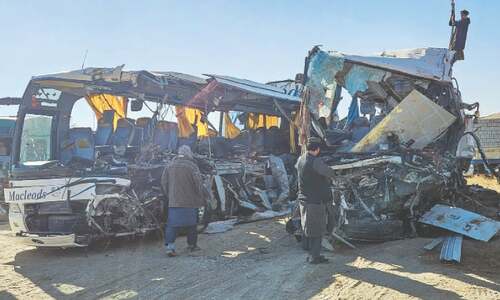RAIPUR, Oct 16 Indian authorities had suspended 17 policemen for refusing to work in a Maoist-dominated area, officials said on Thursday, in what analysts say is a sign of problems police face coping with the rebels in rural pockets.
Four senior police officers and 13 junior officers were suspended for refusing to work in a rebel stronghold in the central state of Chhattisgarh, police said.
“Police will not tolerate such indiscipline, several more cops mainly drawn from inspector and sub-inspector ranks, are in the line of fire,” R.K. Vij, a top police officer.
Security experts said police were often sent to forests without adequate weapons or protection, ending up isolated and at risk in thinly staffed outposts.
“A great deal of deployment is irrational and the government is deliberately sending the policemen to their deaths it seems,” said Ajai Sahni of New Delhi’s Institute for Conflict Management.
Sahni has long argued that the police are massively under-resourced to cope with the Maoist threat.
In July, 38 policemen of the elite anti-insurgency unit were killed by the rebels in the eastern state of Orissa. At the time, analysts said they had been ‘sitting ducks’, lacking proper knowledge of the jungle territory.
Thousands of people, including hundreds of policemen, have been killed in the insurgency, which began in the late 1960s and affects pockets of the countryside in eastern and central India.
Prime Minister Manmohan Singh has described the insurgency as the gravest threat to India’s internal security.
In Jharkhand, the government has been forced to delay creation of a special force to tackle the Maoist threat after several officers refused to join.
The government has now promised higher wages to attract officers to join the new force.
On Thursday, suspected Maoist rebels kidnapped four railway officials in a remote district in the same state, which police said was deliberately done to intimidate them.
One police officer who was recently posted to a Maoist-hit area in eastern West Bengal state said he was forced to live in a tent and almost never slept at night.
“It is a situation where they cannot defend themselves, leave alone protect people’s lives,” Sahni said. In remote villages, the doors of police posts are often locked after dark because police fear night raids.—Reuters














































Dear visitor, the comments section is undergoing an overhaul and will return soon.